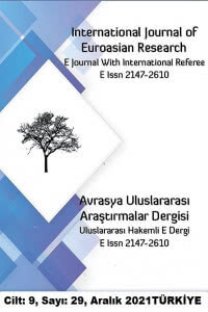GİRİT İSYANI’NDA YUNAN GÖNÜLLÜLER (1866-1869)
Mora’da başlayan isyan ile bağımsız Yunanistan’ın kuruluşuna giden kapılar ardına kadar açılmıştır. Fransa, İngiltere ve Rusya’nın ittifak halinde 1827 yılında gerçekleştirdikleri Navarin Baskını ile Yunanistan’ın fiilen bağımsız bir devlet haline getirildiği tüm dünyaya ilân edilmiştir. Yeni devlet kurulduğu andan başlayarak hem içerideki dinamiklerden hem de kurucularına duyduğu minnetten kaynaklanan bir mecburiyet ile yüzleşmek zorunda kalmıştır. Bu mecburiyetin doğal sonucu olarak genç Yunan Krallığı’nın kurucu siyasî aktörleri, geniş Osmanlı coğrafyasında yaşayan soydaşları ile birleşme hayalini devletin meşruiyeti ile eşanlamlı hale getirmişlerdir. Bu hayal vazgeçilmez bir hedef haline getirilerek Megali Idea biçiminde tarif edilmiş ve 19.yüzyıl boyunca Osmanlı topraklarında sık sık test edilmeye çalışılmıştır. Girit, bu zorunlu ve yayılmacı politikanın sahneye konulduğu en önemli Osmanlı topraklarından biri olmuştur. Nitekim 1866 yılının bahar aylarında Girit bir defa daha isyana teslim olunca Yunanistan, adanın Osmanlı Devleti’nden koparılarak Atina ile birleşmesi amacıyla hayli ciddî bir çaba içine girmiştir. İsyanın başladığı ilk günlerden itibaren bizzat devlet tarafından hem sivil hem de askerî unsurlardan gönüllü birlikleri oluşturularak Girit’e gönderilmiştir. Bu organizasyonda görev almaya hevesli pek çok isim devlet tarafından teşvik edilmiş ve Yunanistan, açıkça haydutluk anlamına gelen bu faaliyetine neredeyse hiçbir endişe duymadan yaklaşık üç yıl boyunca devam etmiştir. Mora ve diğer Yunan topraklarından hem gönüllü/çete liderleri hem de devlet tarafından toplanan gönüllülerin Girit’e gönderilmesindeki ana hedef, Osmanlı Devleti’ni askerî olarak yenilgiye uğratmaktan daha çok isyanın uzaması ve büyük devletlerin müdahalesini sağlamaktan ibarettir. İsyanın ilk günlerinden itibaren Fransa ve Rusya’nın sunduğu destek, Yunanistan’ın, Avrupa müdahalesi hakkındaki arzusunun makul bir zemine dayandığını göstermektedir. Ancak Bâbıâli’nin takip ettiği kararlı politika ve diplomasinin yanı sıra Fransa ve Rusya’nın aksine İngiltere’nin, Osmanlı ile aynı perdede karar kılması, Atina’nın mukadder mağlubiyeti ile sonuçlanmıştır.
THE GREEK VOLUNTEERS DURING THE UPRISING OF CRETE (1866-1869)
The rebellion of Morea paved the way for the independence of Greece. The navies of England, France and Russia composed an alliance and they defeated the Ottoman naval force in the battle of Navarino which means the proclamation of the Greek independece practically. From the beginnings of the foundation of the Greek Kingdom that the new state had to face with the inner dynamics and her gratitudes towards the sponsors of that freedom. As a result of these two kinds of responsibility the new kingdom had accepted the policy of expansion (i.e irredentism) through the Ottoman lands to unite herself with the Greek population in the Ottoman Empire. This also provides a kind of legitimacy for the existence of the young state. This policy or goal has been described as Megali Idea which has been put into practice in the Ottoman lands through the XIXth century and the island of Crete was one of the most important areas with respect to the execution of this holy idea. A new uprising began in Crete in 1866 and Greek politicians believed in that it was a great opportunity to unite the island with Greece. Th Greek State has organized the volunteers deriving from both civilians and military corps to sent them Crete. The people full with enthusiasm have been provoked by the Greek State and she went on this operation as long as three years. Actually it was a definite banditry organized by the state but Greece had no fear to be denounced as a bandit state. The main idea to sent the volunteers picked by both bandit leaders and state herself was not to defeat the Ottoman military organization but to obtain the European intervention by virtue of the extension of the uprising as far as possible. This was a quite reasonable purpose or target since both France and Russia sincerely supports the Greek activities from the first days of the uprising onwards. Howewer Greece has acquired the warm supports of these two great powers England was in opposite direction and she provided very effective aids to the Sublime Porte. Both the brilliant diplomatic abilities of the Ottoman State and the English support resulted in the defeat of Athens.
___
- Bitis, Alexander. 2006. Russia and the Eastern Question: Army, Government and Society (1815-1833). Oxford: Oxford University Press.
- Clogg, Richard. 1997. Modern Yunanistan Tarihi. (D. Şendil, Çev.). İstanbul: İletişim Yayınları.
- Jusdanis, Gregory. 1998. Gecikmiş Modernlik ve Estetik Kültür: Milli Edebiyatın İcat Edilişi. (T. Birkan, Çev.). İstanbul: Metis Yayınları.
- Kazancakis, Nikos. 1993. Kaptan Mihalis. (Nevzat Hatko, Çev.). İstanbul: Can Yayınları.
- Kılıç, Musa. 2021. “Yanko Fotiyades (Jean Photiades) Paşa’nın Bürokratik Kariyeri”. Emre Aydemir-Sema Sağlık (ed). Sosyal ve Beşeri Bilimlerde Araştırma ve Değerlendirmeler III. Ankara: Gece Kitaplığı Yayınları. ss. 87-108.
- Ledonne, John P. 2016. Rus İmparatorluğu’nun Büyük Stratejisi (1650-1831). İstanbul: Avangard Kitap.
- Mehmed Salâhaddin. 1306. Bir Türk Diplomatının Evrâk-ı Siyâsiyyesi. İstanbul: Alem Matbaası. Muharrerât-ı Resmiyye. İstanbul, tarihsiz.
- Pınar, Hayrettin. 2012. “Kostaki Musurus’un Atina Sefareti ve Osmanlı-Yunan Diplomatik Krizi”. Belleten. 76 / 275. ss.207-238.
- Pınar, Hayrettin. 2012. “Osmanlı-Yunan Krizi ve 1869 Paris Konferansı”. Hacettepe Üniversitesi Türkiyat Araştırmaları Enstitüsü Dergisi. S.16. ss. 133-172.
- Robson, M. M. 1960. “Lord Clarendon and the Cretan Question, 1868-1869”. The Historical Journal. vol.3, No.1. ss. 38-55.
- Rodogno, Davide. 2012. Against Massacre: Humanitarian Interventions in the Ottoman Empire 1815-1914. New Jersey: Princeton University Press.
- Salzmann, Ariel. 2011. Modern Devleti Yeniden Düşünmek: Osmanlı Ancién Regime’i. (A. Özdemir, Çev.). İstanbul: İletişim Yayınları.
- Sauvigny, G. de Bertier. 1962. Metternich and His Times. (P. Ryde, Çev.). London: Dorton, Longman and Todd.
- Viereck, Peter. 2005. Conservatism Revisited: Revolt Against Ideology. New Brunswick: Transaction Publishers.
- Hariciye Nezareti Siyasi Kısım Evrakı (HR. SYS.): 482 / 1.
- İrade / Girit: 241, 245, 248, 256.
- İrade / Yunanistan (İ. MTZ. 01): 15 / 452, 15 / 461, 15 / 462, 15 / 482.
- National Archives (NA) Foreign Office (FO): 78 / 2024.
- National Archives (NA) Foreign Office (FO): 881 / 1635; No: 1, 2, 3, 4, 7, 10, 11, 13, 14, 15, 16, 26, 44, 45, 49, 140, 167, 170.
